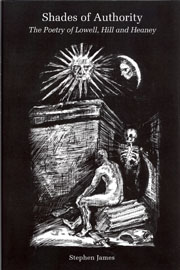Mutable Redress
from Essays on Seamus Heaney
Summary
The title of Heaney's 1995 collection of Oxford lectures, The Redress of Poetry, sways ambiguously between two competing implications: on the one hand, it suggests that poetry has the potential to resolve inequities; on the other, it entertains the notion of the poem as the rightful recipient of redress. As soon becomes clear, what poetry needs to be redeemed from, to Heaney's mind, is precisely the pressure conveyed in the first way of reading the title; at the heart of his book is a conflict between the seemingly irreconcilable imperatives to trust in poetry ‘as a mode of redress in the first sense – as agent for proclaiming and correcting injustices’ and ‘to redress poetry as poetry, to set it up as its own category, an eminence established and a pressure exercised by distinctly linguistic means’ (RP 5–6). The supposition in the phrase ‘distinctly linguistic’ that world and text are somehow dissociable is of a piece with Heaney's assertion, in his previous volume of essays The Government of the Tongue (1988), that ‘poetry is its own reality and no matter how much a poet may concede to the corrective pressures of social, moral, political and historical reality, the ultimate fidelity must be to the demands and promise of the artistic event’ (GT 101).
- Type
- Chapter
- Information
- Shades of AuthorityThe Poetry of Lowell, Hill and Heaney, pp. 146 - 166Publisher: Liverpool University PressPrint publication year: 2007

